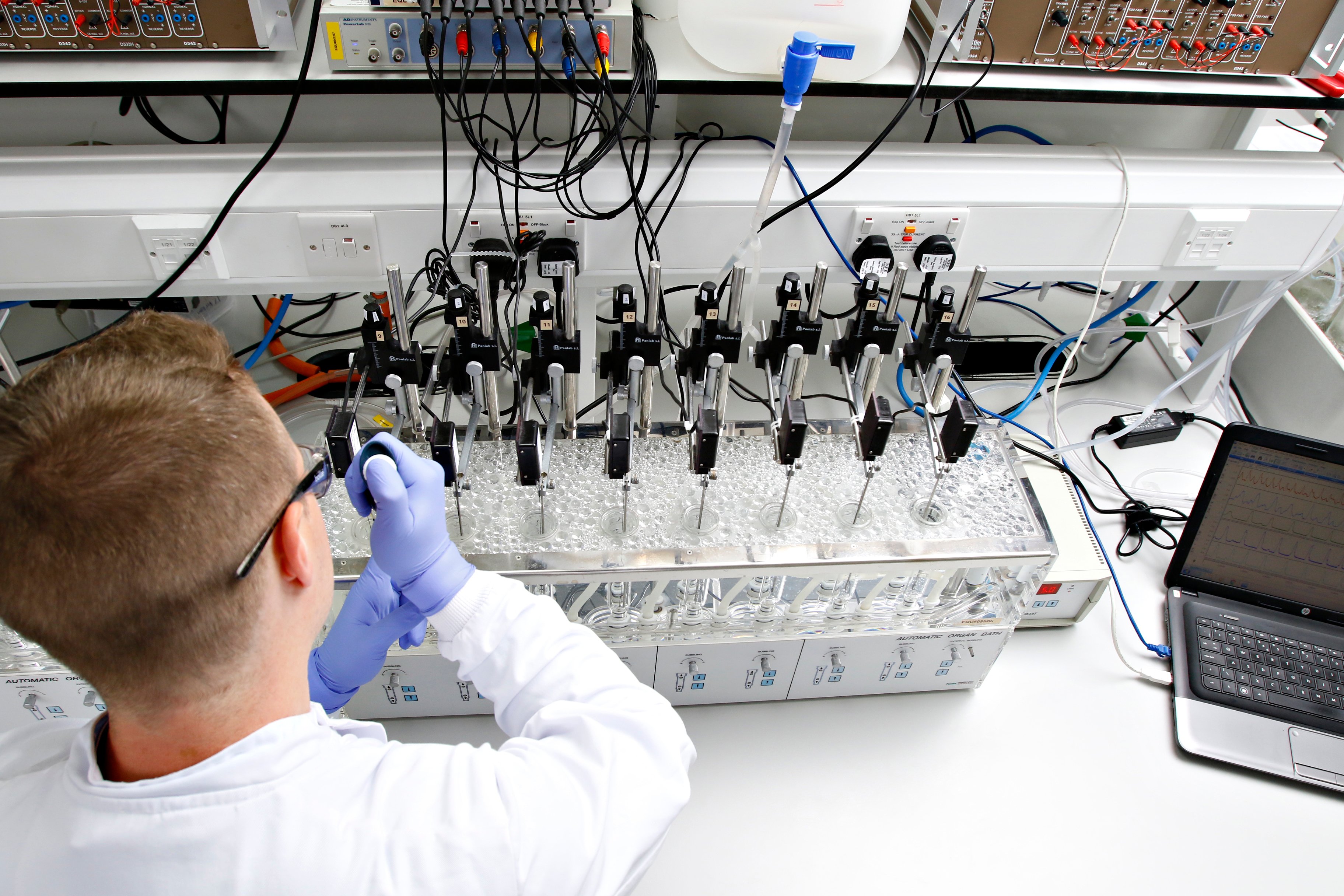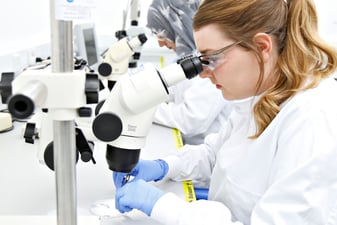A database linking medical history and tissue compound response has direct relevance to future drug discovery projects and healthcare stratification. By making this data available to point-of-care centers, it could transform medication management approaches and improve individual patient care [1]. As the concept of integrating Big Data with healthcare is on the rise, it is increasingly appropriate to have reliable information at your fingertips.
REPROCELL has initiated a research and development project where historical data regarding Inflammatory Bowel Disease (IBD) has been collated. Tissue samples were donated by patients for whom conservative treatment had failed and subsequently required surgical intervention. This data collection project is in its infancy, but it already includes the anonymized medical history of over 250 different donors.
Inflammatory Bowel Disease and Big Data
As Lindsey Moffitt discussed in “An Improved Model for IBD Drug Discovery”, IBD is a treatment-resistant disease and is on the rise globally [2]. A multidisciplinary approach with standardized data will be necessary to combat IBD.
REPROCELL sources a wide variety of human tissue from global biobanks. This puts the company in a unique position of matching a tissue’s compound response to the donor’s medical history. Bridging the disconnect between these two areas could offer new disease insight, even without an individual’s genetic profile.
It was the medical data collected from REPROCELL’s IBD tissue donors that I was asked to standardize. Identifiable patient data is anonymized, but information regarding specific medical history is retained. After all, the accurate analysis of biological response is dependent on how data is input at source and what variety of data is available.
| Data examples | |
|---|---|
| Medical | General Health |
|
|
International Informatics
Projects such as The 100,000 Genomes Project [1] have set a precedent that Big Data can expand into healthcare, allowing for a symbiosis to develop between diagnostics and research.
The old saying is that prevention is better than cure. A UK policy paper of the same name details its aim to increase healthy life expectancy by 2035 [3]. This document addresses how large-scale data analysis can result in more time being allocated back to patient care, and the associated positive impacts. These include: increasing the speed of diagnosis, treatment targeting, and the amalgamation of existing medical data. This is particularly important with regard to managing illnesses which increase Disability Affected Life Years (DALYs), such as dementia, diabetes, and other long-term conditions, such as IBD.
“The ultimate goal would be to make a database available to every healthcare professional at point of care”
- Sean Scroggie, Precision Medicine MSc Graduate
Already a precedent has been set of large-scale data collection being used for medical research. For example, Sea Hero Quest is an App Store game designed for dementia research. The game collects information about how people process navigational data in conjunction with their age and various other environmental factors, like exercise frequency [4].
The next logical step in the development process would be to create a program which can perform meaningful and comprehensive analysis on this data. However, this is limited by how much information people wish to unconditionally divulge. Although Big Data is a growing interdisciplinary field, there are still concerns that it is possible to store such personal data safely, consensually, and with transparency [3].
However, there has been a slow shift in public opinion with regard to Big Data and the NHS, illustrated by the hashtag #datasaveslives [5]. Principle seven of England’s Caldicott principles acknowledges that data release can be in the best interests of the patient – as long as that release is justified, necessary, minimal, need-to-know, regulated, and lawful [6]. A similar, focused approach would be necessary to assuage concerns for any future projects processing medical data.

Figure 1: Examples of different types of ulcerative colitis, which is a form of IBD.
The affected areas are highlighted in yellow.
Infancy of IBDiscovery
The development of an application which can analyze concurrent data from patient medical history and tissue testing would be a step in the direction of making stratified medicine available to all. REPROCELL’s Masters students Sean Scroggie and Sazzadur Rahman have been using IBD tissue data to develop an application for the company. This project has been given a working title of IBDiscovery.
“[IBDiscovery] is a crucial first step in the development of future treatments and for the use of apps in predictive medicine”
– Karen McAulay, Clinical Alliances Manager
REPROCELL’s intention is of creating an information bank, not only for future drug discovery purposes, but also for development into a program used by healthcare professionals at point-of-care.
For REPROCELL, IBD data is just the start. The end goal is to collate data from all tissues received by the company. In a healthcare setting, an application of this type would lead to early elimination of inappropriate drugs, phasing out the traditional trial and error approach which is time-consuming, expensive, and often distressing to the patient.
In particular, if it were possible to link medical history trends with tissue response, this could be used to develop new drug discovery approaches and stratify treatment.

Figure 2: REPROCELL's organ baths in use
Author's note:
I have been able to work on this innovative project because of the Scottish Life Sciences Internship Programme (SLSIP). I was very lucky to have been one of the winners of the Life Sciences CV Competition which allowed me to work for REPROCELL for 10 weeks. The SLSIP is managed by ScotGrad and is open to first, second, and third year life science students. The employer offers an interview based on the merits of your C.V.: in 2019, there were over 1000 applicants for all available positions. It is an opportunity which teaches valuable skills to Scottish Life Sciences undergraduates, allowing them to experience the reality of working in a scientific environment.
References
- Genomics England Limited. The 100,000 Genomes Project (2019).
- Burish et al. Inflammatory bowel disease epidemiology. Current Opinion Gastroenterology 29:4 (2013).
- GOV.uk – Department of Health and Social Care. Prevention is better than cure: our vision to help you live well for longer (2018).
- Alzheimer’s Research UK. Play Sea Hero Quest and #gameforgood (2016)
- Lawrence et al. Big data and the NHS – we have the technology, but we need patient and professional engagement. Future Healthcare Journal 3:5 (2018).
- Gov.uk. To Share Or Not To Share? The Information Governance Review [PDF]. (2013)










